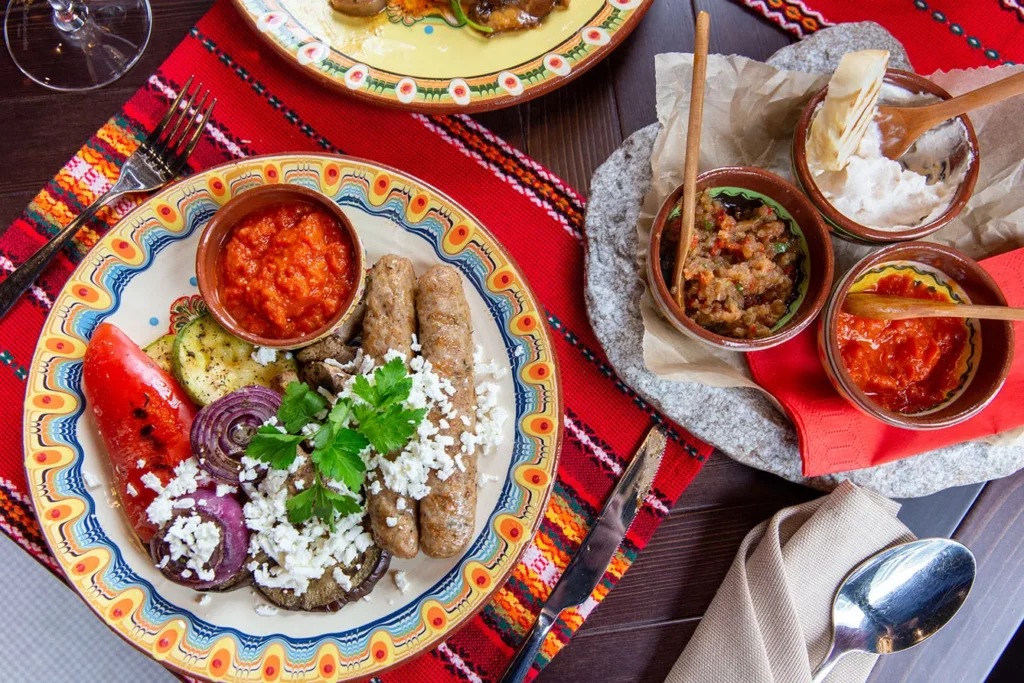For years, foreigners visiting Sofia have been asking local Ilyan Kostov for advice on where to enjoy some delicious Bulgarian food. “I’ve noticed that gradually, my answer went from “Anywhere you like to one particular restaurant,” Vasil tells 3Seas Europe. “The funny thing is I’ve never been to this restaurant myself, but no one has been disappointed so far.”
How is it that in a country still largely sticking to traditional recipes at home, options to try Bulgarian food outside are decreasing? Could it be that Bulgarians, unlike Greeks, for example, their neighbors to the south, prefer to spend their money on restaurants offering international cuisines instead of ordering something they can easily whip up at home? It’s complicated.
A downward trend in Bulgarian restaurants
“There is indeed a downward trend in the number of Bulgarian restaurants, especially in smaller cities and towns. But that is also true of some neighborhoods in Sofia,” observes Richard Alibegov, Chairman of the Bulgarian Association of Restaurants. “There is a myriad of reasons for the decline. During and after the pandemic, the state was late to offer help. In many cases, it was not enough at all. Unfortunately, quite a few of our colleagues running Bulgarian restaurants decided to close.”

“This year, we’ve been seeing some reopenings, but we’re far from witnessing a boom in the industry. Our colleagues prefer to keep a low profile to weather the difficult situation fueled by high inflation. Those who had three outlets now only have one. And to top it all up, our industry is struggling with a significant lack of a labor force despite offering rather good salaries,” Alibegov adds.
Ivan Vasilev, owner of a small eatery just outside Sofia, also observes worrying signs. “Come to think of it, I don’t know where one can order some of the truly Bulgarian dishes. My place is technically a Bulgarian restaurant, but we go heavy on meat, which makes us more of a Balkan-style eatery. The interest in our offer is big, but mostly among foreigners,” Vasilev tells 3Seas Europe. “Nowadays, if someone decides to open a restaurant, it most probably won’t be Bulgarian. Chances are it will be a place with Mediterranean food or yet another bakery with an elaborate coffee menu.”
The real answer: you have to know where to look
And yet, don’t despair. Bulgarian food is available; one just has to know how to find it. Breakfast is easy. Banitza, the beloved cheese-filled filo dough pastry, is still very much around. For those eating lunch outside their office, the quest is hardly a challenge. “The lunch menu” is an institution in many restaurants, no matter their profile. And it’s the time to introduce local dishes in menus otherwise laden with pizza, pasta, and burgers. But good luck finding the same Bulgarian lunch options at the same restaurant around dinnertime. Not happening. Which brings us to another key question, what exactly is a Bulgarian restaurant?
The foodies and food writers we reached out to for this article agree: The question has many answers, from a “traditional” interior to offering the world-famous Shopska Salad in a pizza parlor and anything in between. And while places one might label “traditional” are getting harder to find, the old recipes might still live on in places with nothing overly “Bulgarian” in their name or décor. Confusing menus merging a myriad of cuisines remain a Bulgarian staple.
An upward trend
Pavlin Petrov, co-chair of the Bulgarian Association of Restaurants, in conversation with 3Seas Europe, points to the good news: Despite difficulties, more places are opening. “Compared to 2019, there is an increase in the number of eateries. Nearly 4,000 new eating and entertainment establishments have opened, according to data from a specialized register we’ve reviewed. And the sector is offering opportunities to university graduates, too, as their numbers continue to grow.
For example, someone studying accounting while working as a waiter to supplement their budget might decide to stay after graduation and become a manager. The opportunities are there,” Petrov says.
Now that this has been settled let’s eat. Dobar apetit!







